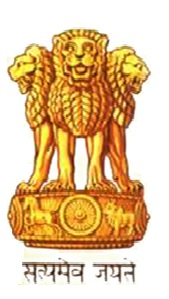
Permanent Mission of India
Geneva
Intervention by India on Agenda Item 7.2 Antimicrobial Resistance at the 140th Session of Executive Board of the WHO delivered by Dr. Sumit Seth, First Secretary on 25 January 2017
Mr. Chair
Antimicrobial Resistance has emerged as a major public health challenge and is rightly receiving increasing attention globally. At National level, India adopted a National Antibiotic Policy in 2011. The development of our National Action Plan has commenced and will be completed well in time of the May 2017 commitment. Surveillance networks have been established for various pathogens under the aegis of National Centre for Disease Control and Indian Council of Medical Research. We have suitably amended our Drugs law and rules to better regulate the sale of Antimicrobials and promote rational use of drugs.
All antibiotics have a mandatory ‘redline’ displayed on their packs. We have launched a multi-media campaign based on the ‘redline’ to educate consumers and other stakeholders so that drugs with redline are only consumed as prescribed by the doctor and the full course is completed.
India along with other Member States have constructively played a proactive role in the adoption of a well-balanced Global Action Plan on AMR at the 68th WHA. India has also made significant contributions to the first ever Political Declaration on AMR adopted at the High-Level Meeting on AMR which took place at the UN General Assembly in September 2016, the declaration endorsed the WHO Global Action Plan on AMR and called for urgent, comprehensive and coordinated multi-sectoral actions by all Member States to tackle AMR. A major outcome of the High-Level Political Declaration on AMR was the mandate given to WHO to develop a Global Development and Stewardship Framework on AMR.
Delegation of India is of the view that the progress on the development of a Global Development & Stewardship Framework is slow, we would like to know the reasons from the WHO Secretariat. While developing the said framework, there should not be any unbalanced emphasis on a Stewardship Framework that focuses only on controlling the production, distribution and sale of antibiotics. There is a need to also focus on the equally important and interrelated issues of research and development and affordable access to new and existing antibiotics and diagnostics in tackling the challenge of AMR, including in HIV, TB and malaria. Unfortunately, we note that the STAG on AMR and the WHO Secretariat are not paying enough attention on these issues.
India supports that all the three interconnected issues of antibiotic stewardship, R&D in new antibiotics, and access to new and existing antibiotics are reflected in a balanced manner in any eventual global framework on AMR. The delineation of such a framework should be done through an intergovernmental process and not left to the experts alone. We hope the Secretariat makes adequate preparations to initiate such process at the earliest.
Mr Chair,
Finally, we would like to reiterate that AMR should be addressed in a comprehensive manner with adequate attention given to the development and equity related aspects of AMR. The focus should not only be on development of national action plans but more importantly on supporting member states in proper implementation of such plans through adequate technical support and mobilization of resources as emphasized in the UN High-level political declaration on AMR. We hope the Secretariat’s report to 70 WHA also dwells on this important aspect.
With these words, I thank you.












